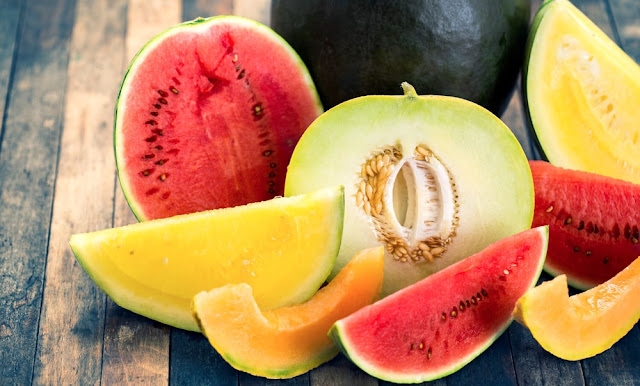It turns out that fruit can also make allergies
Generally, people are allergic to peanuts, milk, or even other sources of protein. However, do you know if there are others who experience fruit allergies? Just like other food allergies, fruit allergies will cause itching after eating various kinds of fruit. Why can someone experience fruit allergies?
What is fruit allergies?
Fruit allergies are included in a condition also known as oral allergy syndrome (OAS), caused by fruits that have certain proteins.
Oral allergy syndrome or also called Pollen-food allergy syndrome occurs because some fresh fruits and vegetables contain proteins similar to allergic proteins. These allergy-causing proteins are usually found in pollen, such as ragweed, birch, mugwort, and grass.
Well, it turns out that watermelon or melon contains these proteins which can trigger common allergies, like allergies to pollen from ragweed or grass.
So if you are allergic to plants such as ragweed, grass or birch, your immune system thinks that the melon or watermelon you eat is pollen protein, which eventually results in an allergic reaction.
Fruit allergies because of the similarity of proteins in fruit and plants are also often referred to as cross-reactions.
Who is at risk of developing a fruit allergy?
People with a history of allergic reactions to birch, ragweed plants, or grass pollen, can experience oral allergic syndrome. However, this condition is usually not found in children.
Conversely, children who are 10 years old or older or are adolescents, and young adults can even experience fruit allergies despite eating the same fruit for years. This is because oral sensitivity in humans can develop with age.
What symptoms and fruit can cause allergies
In addition to fruit, cross-reaction of pollen from this plant can also occur in fresh vegetables and nuts. Symptoms may be itchy in the mouth or another body, burning sensation, stinging sensation in the mouth, throat.
Also note, that the symptoms of fruit allergy generally only last a few seconds or minutes. This is because the fruit protein can be quickly broken down by saliva. This allergy can usually disappear quickly and does not require serious treatment.
Some fruits that are at risk of triggering fruit allergies:
- Protein Birch pollen, this allergen can react to fruits such as apples, almonds, carrots, celery, cherry, hazelnut, kiwi, peaches, pears, and plums.
- Allergen grass pollen protein can react with celery, melons, oranges, peaches, and tomatoes.
- Allergen ragweed pollen protein can react with bananas, cucumbers, melons and sunflower seeds.
Cooking certain fruits can prevent allergies
In some cases, cooking certain fruits and vegetables can destroy and alter the protein that causes the oral allergic syndrome. However, this depends on what fruits, nuts, and vegetables trigger allergies.
Generally, nuts and spices have certain conditions themselves when cooked. Nuts and celery contain several allergens and not all of them are destroyed by heat. In addition, allergens in strawberries are also resistant to heat.
In addition, pasteurized fruit juice (heated or cooked) is generally not consumed. Then, most food sources such as tomatoes, apples, potatoes, pears, and most other soft fruits are also safe to cook to destroy allergic proteins.

0 Response to "It turns out that fruit can also make allergies"
Post a Comment
Your Comment